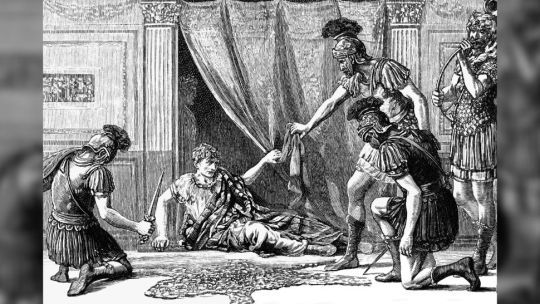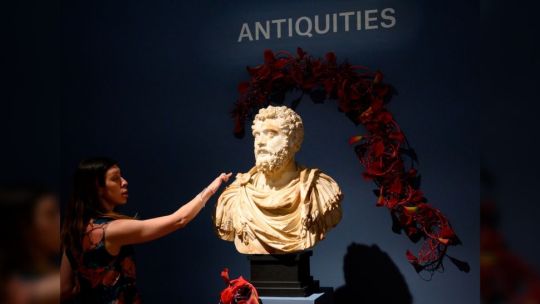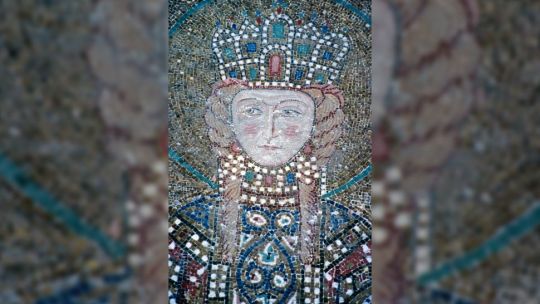#ampir
Explore tagged Tumblr posts
Text

WARNING: MAY BITE TONIGHT AT 8
144 notes
·
View notes
Text
uuhhmm
looksaround
vampire moon

Eeeyup
i have nothingelse to post im goingtoexplode💥💥💥💥
#Myart#dca fandom#f#naf#mo on#Fnaf moon#V ampire#Iwantvampi re#Vampire au#meowmeowmeowmeow#di d u know i like vampires#Didyouonowi like💥💥💥💥💥💥
398 notes
·
View notes
Text

🦇🍷
#my art#digital art#artists on tumblr#digital drawing#sketch#weight gain#male weight gain#fat art#bhm weight gain#fat bhm#bhm wg#v/ampire cookie#fat vampire
238 notes
·
View notes
Text

#2000s blog#2000s alternative#alternative fashion#alt fashion#alt style#alt aesthetic#alt model#alt girl#2000s nostalgia#2000s aesthetic#ampire freaks#myspace#myspace era#myspacecore#myspace aesthetic#girls wirh piercings#alt makeup#girls with plugs#stretched lobes
23 notes
·
View notes
Text
the elriel brain rot has well and truly returned
#by this i mean i was writing a fairly light modern au#and now......now i am thinking of.......a certain type of folklore figure#perhaps starting with a v and ending in ampire#elriel#hush m
19 notes
·
View notes
Photo



A ROMAN GREEN GLASS FOOTED KANTHAROS
CIRCA MID-1ST CENTURY A.D.
5 1/2 in. (14 cm.) high.
#A ROMAN GREEN GLASS FOOTED KANTHAROS#CIRCA MID-1ST CENTURY A.D.#archeology#archeolgst#glass#ancient glass#ancient artifacts#history#history news#ancient history#ancient culture#ancient civilizations#ancient rome#roman history#roman ampire#roman art
144 notes
·
View notes
Text

Me realizing that the five year anniversary of me RPing Yumeno is in less than a month. Like, that's so crazy.
#// my blogs are as old as the D/ecay of Angels/H/unting Dogs/V/ampire arc BYE#╰ (✪∀<) ~ *:・゚✧ To bring out all the ghosts to light. ◜☆◞ OOC.
14 notes
·
View notes
Text

some doodles of my favorite dumb ass vampire, ken-z ❤️❤️❤️
7 notes
·
View notes
Text
oh this is not that bad i am pleased that events are taking place in real time again obviously the framing device is a large part of the appeal of the first few books but at some point it begins to feel like the narrative will never actually advance and you are always hearing about things at a sort of scholarly remove which on the one hand well transmits the idea that these are very miserable and nostalgic people fixed at a point in time in more ways than the physical* and on the other hand is very annoying to read
*this is the OTHER THING which weigheth heavily upon me and i know that it is called the vampire chronicles but she seriously cannot think of a trajectory for any character that is not becoming a vampire and for vampires to become stronger, cooler vampires i have latterly been facetious on this matter but it was interesting for the character that louis wanted to remain a weak vampire so as to leave the possibility of dying open and i am still not entirely sure what was gained in losing this because the end of that book was very silly more generally but anyhow
#and the merrick vampire twist is entirely overshadowed by the fact that he has just been revealed to have not killed himself and the david v#ampire twist is bad because i hate david
2 notes
·
View notes
Text
Junhui: Death itself cannot stop me, nor can your attempts to bring me to it. I have been to hell and took its throne. God is dead and I made weapons from his bones and a suit from his skin. You have no greater force then what I have already felled. Come and kill me. It will not make a difference.
Mingyu: Why the fuck do I keep meeting people who have killed God? How many of you were there in the party?!
Chan: We just keep making more of them and taking turns killing them like farming a dungeon. So far 40 people have joined. Might as well make it 41, join the squad.
Mingyu: I’ll think about it…
Junhui: We also have macaroni and cereal. You have to either eat it, join, or both. Thus is the price of killing a god and getting their domain.
Mingyu: Both sounds pretty good not gonna lie.
#junhui#mingyu#chan#jun#dino#incorrect quotes#svt#kpop#seventeen#incorrect svt quotes#incorrect kpop quotes#incorrect seventeen quotes#incorrect svt#incorrect seventeen#incorrect kpop#seventeen incorrect quotes#svt incorrect quotes#kpop incorrect quotes#source: tumblr#source: not-av-ampire#source: just-axolotl-thoughts
25 notes
·
View notes
Photo


mastered my reshade wont be taking further q’s ty
#ts4#sims#the sims 4#nadine becker#bbygirl best becker side character#sweetie pea amazing angelv ampire gerl#these r unedit srry i refuse to crop them or edit them im just showing off
15 notes
·
View notes
Text
vampire mutual after I offer my blood for their cause "for real? 🥺"
#not sure if it was an actual v/ampire in the dream. they just needed blood somewhy. it was kind of important#staying alive important so awake brain just assumed
2 notes
·
View notes
Text


He is the youngest son, born to Lord Cronous and Lady Erina. but he is no longer on talking terms with them... find out why. in the House of Dragonmir. A Dark Fantasy, full of Dragons, love, betrayal, lust and more.
#Blitzillion Dragonmir#The House of the Dragonmir#original character#Dragon/Pheonix/V ampire hybrid#HellvuaBossOC
0 notes
Text

gnashing teeth
#el's art#digital sculpture#3d model#digital art#3d modeling#3d art#vampire oc#vampire art#ampire#blood#horror#i dont know#see him
1 note
·
View note
Photo

The 5 craziest ways emperors gained the throne in ancient Rome
One gained it through money and another was found hiding behind a curtain.
For centuries, becoming emperor of the Roman Empire was an enticing prospect, and numerous people schemed, battled and murdered each other for this ultimate prize. But being the ruler of ancient Rome was a risky business, despite the immense wealth it brought and the almost unlimited authority over powerful armies and a vast territory. In 2019, a study in the journal Nature (opens in new tab) revealed that 62% — almost two-thirds — of Roman emperors died violently, which means their chances of surviving the early years of their reign and reaching a peaceful old age were worse than those of a Roman gladiator surviving a fight.
And merely gaining the imperial throne could be difficult, too. There was no established procedure for transferring power when a Roman emperor died, regardless of his cause of death, in spite of various attempts to establish the rules of succession. In total, there were about 77 emperors who led the Western Roman Empire, from Augustus in the first century B.C. to Romulus Augustus in the fifth century A.D. The Eastern Roman (or Byzantine) Empire had about 94 emperors between Constantine the Great in the fourth century and Constantine XI Palaeologus, who lost Constantinople to the Ottoman Empire in 1453. And almost every time an emperor died, the entire empire was thrown into chaos by the issue of who would assume power. Here's a list of some of the ways Roman emperors secured the coveted throne for themselves.
1. INHERITANCE

Inheriting a throne may seem straightforward in the modern world, where established royal families traditionally (and usually peacefully) pass on their titles to the next generation, but it wasn't so easy in the Roman Empire. "One of the weaknesses of the Roman imperial political system was that there were never any clear rules or principles for succession," Richard Saller, a professor of classics and history at Stanford University in California, said in an email. "That weakness goes back to the claim of the first emperor Augustus that he was restoring the [Roman] Republic in which public offices could not be inherited."
Probably the most famous emperor to inherit the throne was the fifth Roman emperor, Nero, who was born Lucius Domitius Ahenobarbus in A.D. 37. His mother, Julia Agrippina, a great-granddaughter of Augustus, became the fourth wife of the emperor Claudius in A.D. 49 and persuaded her new husband to adopt the boy later that year. Nero then inherited the imperial throne at age 17 after Claudius died in A.D. 54; several Roman historians alleged that Claudius had been poisoned by Agrippina in order to advance her son. But Nero showed no family loyalty, and after pretending to share power with his mother for several years he ordered Agrippina's murder in A.D. 59. According to the fist-century Roman historian Tacitus, Nero first tried poison, which didn't work; he then caused her boat to sink, which she swam away from; and finally, he ordered a straightforward assassination.
While Nero inherited the throne relatively peacefully, his reign ended in chaos: Beset by problems, Nero was declared a public enemy by the senate and abandoned by the army, and he committed suicide in A.D. 68. He had no living children to succeed him, and the empire plunged into violence as multiple claimants fought to secure the throne.
2. THE PRAETORIAN GUARD

Claudius, the fourth Roman emperor, ascended the throne during an outbreak of violence that would echo for centuries. The Praetorian Guard originated during the Roman Republic as a corps of bodyguards for army generals, but the Praetorians were then appointed by Augustus, the first Roman emperor, in 27 B.C. to be the emperor's personal bodyguard. After that, they grew in prestige, and by the reign of the third emperor Caligula (real name Gaius Caesar Augustus Germanicus) they had become so powerful they could even topple an emperor.
Caligula, a great-grandson of Augustus who reigned from A.D. 37, was initially popular, but stories of his predilections for sadism and sexual perversion have led him to be portrayed as a brutal and lascivious tyrant. Eventually he alienated both the Roman nobility and the army, and Caligula was assassinated by officers of the Praetorian Guard in A.D. 41.
The Praetorian soldiers then rampaged through the imperial palace. According to the first-century Jewish and Roman historian Josephus, they found Claudius — Augustus' great nephew and Caligula's uncle — hiding behind a curtain. The Praetorians proclaimed Claudius emperor, and he ruled with their support until his death in A.D. 54. This was the first time the Praetorian Guard had selected a Roman emperor, but it would not be the last.
3. BUYING IT

After the emperor Commodus' assassination in A.D. 192 (instigated by the leader of the Praetorian Guard), the Roman Empire entered a period known as the "Year of the Five Emperors." Pertinax, who was a senior senator of Rome, was installed first; but the Praetorian Guard quickly became disappointed in him because he refused to pay them for their continued support. The Praetorians soon killed Pertinax, just three months after they proclaimed him emperor.
Didius Julianus was next on the throne. He'd served as governor of several provinces and was immensely wealthy. According to the second-century Roman historian Cassius Dio, the Praetorians announced after killing Pertinax that they would sell the throne to the man who paid the highest price, and Julianus won the subsequent bidding war by offering 25,000 sesterces to every Praetorian soldier — the equivalent of several years' pay. After accepting his offer, the Praetorians threatened the Roman senate until they proclaimed Julianus emperor.
But he didn't enjoy the throne for very long. The Roman people, who knew that he had purchased the emperorship, openly opposed the new emperor, and on one occasion pelted him with stones. Eventually, three different generals in the Roman provinces each declared themselves emperor, and they began advancing on Rome with their armies to enforce their claims. Julianus and the Praetorian Guard fought off one of the generals, Septimius Severus, and tried to negotiate a power-sharing deal with him; but eventually the Praetorians and the senate abandoned Julianus; they proclaimed Severus emperor and ordered Julianus to be executed, just 66 days after he'd ascended the throne.
4. WORKING UP THROUGH THE RANKS

Several Roman emperors were born into very humble beginnings but worked their way up through the ranks of the Roman army to become officers and then commanders. Pertinax, for example, was the son of a freed slave, although he only lasted for a few months as emperor. Perhaps the most famous examples are Diocletian, who was born into a low-status family in Dalmatia before rising to become emperor in A.D. 284; and his co-emperor Maximian, the son of a Pannonian shopkeeper, who ruled until A.D. 305. Diocletian and Maximian had met during their ascents through the Roman army and were a powerful combination; the British classicist Timothy Barnes suggested in his 1982 book, "The new empire of Diocletian and Constantine," that Diocletian had the political brains while Maximian had the military brawn. Maximian first supported Diocletian to the imperial throne and then was appointed co-ruler a few years later. According to Britannica, Diocletian also introduced the office of "Caesar"— a junior emperor for each of the two senior emperors, who were titled "Augustus"— and the Roman Empire was ruled for a time by a "tetrarchy," or four rulers. Diocletian was emperor for around 20 years after assuming the throne, and then retired to his palace at Aspalathos (modern Split) in Dalmatia, dying in about 316. Maximian abdicated the throne at the same time that Diocletian retired, in 305; but according to Britannica he claimed the title of Augustus again in 307 to help his son Maxentius to become emperor. After abdicating again in 308 Maximian lived at the court of the emperor Constantine; but he killed himself in 310 after a revolt he’d led against Constantine failed.
Historian William Broadhead at the Massachusetts Institute of Technology in Cambridge noted in an email that the Roman Empire was a military autocracy. "The emperor's legitimacy was based on his command of the very powerful Praetorian Guard at Rome and of the majority of the legions stationed in the provinces," he said. "Those two military institutions learned soon enough that they could play the role of kingmaker." Rising through the army's ranks to be in command of legions was a key way for prospective emperors to gain the army's loyalty.
5. MARRIAGE OR MOTHERHOOD

Tradition decreed that the Roman emperor had to be a man, but several women wielded power behind the imperial throne even if they did not rule directly. "According to Tacitus's account, it was Livia, wife of Augustus and mother of Tiberius, who was thought by many to have determined the first transition of imperial power, by removing [murdering] all potential heirs who were close of Augustus, thereby paving the way for her own son," Broadhead said. Tiberius was Livia's son from her previous marriage, so he was not the obvious heir to the throne. But he became Rome's second emperor upon Augustus' death in A.D. 14, thanks to Livia's actions and marriage to Augustus.
Nero's mother, Julia Agrippina, seems to have manipulated the emperor Claudius into adopting her son, who became emperor after Claudius' death in A.D. 54; and for a while she was hailed as the empire's co-ruler, although eventually Nero had her killed. Many of the stories associated with imperial women may have been embellished or invented, Broadhead said, but "even discounting the more scandalous features of the stories, we can appreciate the importance of [their] position within the imperial household as a determining factor in who gained the throne."
The power of imperial women was most prominent during the later stages of the Eastern Roman Empire, or Byzantine Empire, which was based in Constantinople, modern-day Istanbul, after A.D. 330. One of the most powerful was the empress Irene, who came from a politically prominent Greek family and became the wife of the Byzantine emperor Leo IV. But after his death in A.D. 780, she ruled until A.D. 790 as sole regent in the name of her son, the future Constantine VI. When he was old enough, Constantine tried ruling by himself. But the British historian John Bagnell Bury relates that he was so bad at it that Irene had him deposed and then blinded, to ensure he could never be emperor again. Irene then ruled in her own right as empress from A.D. 797 until she was deposed in A.D. 802 by her finance minister, who became the emperor Nikephoros I. Irene died in exile on the island of Lesbos the following year.
By Tom Metcalfe.
#The 5 craziest ways emperors gained the throne in ancient Rome#roman emperor#history#history news#ancient history#ancient culture#ancient civilizations#ancient rome#romen ampire#roman history#the might of rome
8 notes
·
View notes